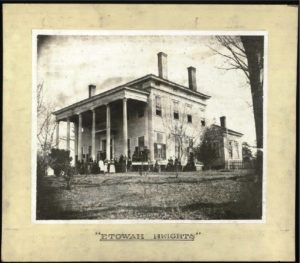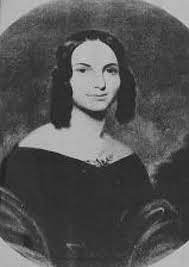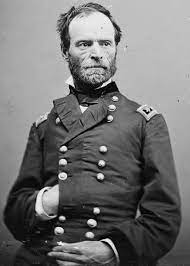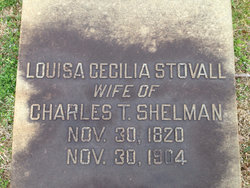On the banks of the Etowah river, which runs through the beautiful north Georgia landscape, stood the historic Etowah Heights mansion, the only building for miles around not destroyed by General Sherman when he made his fiery march through Georgia. The question was often asked: “Why, amid all this devastation, was this beautiful mansion spared?” Standing in its stately isolation, surrounded by meadows and fields with the blue North Georgia mountains guarding it. Surely this traditional antebellum style home would have caused Sherman to be angry and order it burned. How it was saved is a romantic story, which, wholly true, reads like fiction.

Etowah Heights
Before the war, William T. Sherman was a student at West Point. Sherman and a fellow cadet, Marcellus A. Stovall became friends. Stovall was from Augusta, Georgia and was the son of Pleasant Stovall, a wealthy cotton merchant. In 1836, Stovall’s sister Cecilia came for a visit. Cecilia, a dark-eyed Southern belle and beauty, was the hit of West Point. Sherman was so smitten by her charm, wit, and stunning looks, he proposed marriage to Cecilia.

Cecilia Stovall Shelman
Without hesitation, Cecilia replied to young Sherman: “Your eyes are so cold and cruel. I pity the man who ever becomes your foe. Ah, how you would crush an enemy”.
Sherman prophetically replied, “Even though you were my enemy, my dear, I would ever love and protect you”. At that time when all was peace and joy, little did they know how those words would truly come to pass.
In 1845, young Lieutenant Sherman was assigned to detached duty in her home town of Augusta. He was excited to be near Cecilia and hopefully win her heart. But by that time Cecilia was interested in another West Point graduate – Richard B. Garnett, who was also stationed in Augusta. However, her father packed her off to visit relatives in South Carolina, due to the fact that Garnett wasn’t wealthy enough in his opinion. No doubt, Mr. Stovall would have felt the same about Lieutenant Sherman. In South Carolina, Cecilia met Charles T. Shelman, of Bartow County, Georgia. They fell in love. Her father approved and they married in 1848.

General William T. Sherman
Charles Shelman built Cecilia a beautiful white house with Doric columns on a hill above the Etowah River in Bartow County. It was called Etowah Heights, and many of its handsome furnishings were selected in Europe by Cecilia and her father. They were living here when the Civil War started in 1861. It was here that Sherman and Cecilia’s paths would once again cross.
In 1864, General Sherman crossed the Etowah River and saw the beautiful Greek revival house on a hill, about to fall victim to his troops. He was setting everything on fire during his “March to the Sea” through Georgia in effort to end the war. The troops began to remove the valuables from the home in preparations for setting it on fire. Cecilia fled the home when they heard of the Union army marching through Georgia. Charles was an officer in the Confederate Army. General Sherman rode up to the gate, where the lamentations of an elderly black man drew his attention. Shaking his white woolly head, he was mumbling, “I sho’ly is glad Miss Cecilia ain’t here to see it with her own eyes.”
“Miss Cecilia?” echoed General Sherman, “Not Miss Cecilia Stovall?”
But it was, of course, only she was now Mrs. Shelman. Assured by the trembling old man that it was the same Cecilia, he ordered that everything taken from the house be replaced and ordered Union guards to protect the house. Sherman left a written message, still preserved among Stovall family members. It read:
You once said that I would crush an enemy and you pitied my foe. Do you recall my reply? Although many years have passed, my answer is the same. “I would ever shield and protect you.” That I have done. Forgive all else. I am only a soldier.
William T. Sherman
Sherman and his victorious army marched on toward Atlanta. Cecilia Shelman returned home after hearing of Sherman’s kindness in sparing her home from burning. Captain Charles Shelman died in 1886 but Cecilia lived on until 1904, witty and charming and the center of attention to the end of her days. It is not known if Cecilia ever wrote to Sherman thanking him for saving her home. It is romantic to think though that perhaps she did. “Etowah Heights” survived until ironically it burned on New Year’s Day in 1911. An old photograph that has been reproduced shows it white and beautiful and well preserved to the last.

Grave of Cecilia located near Cartersville, Ga.





